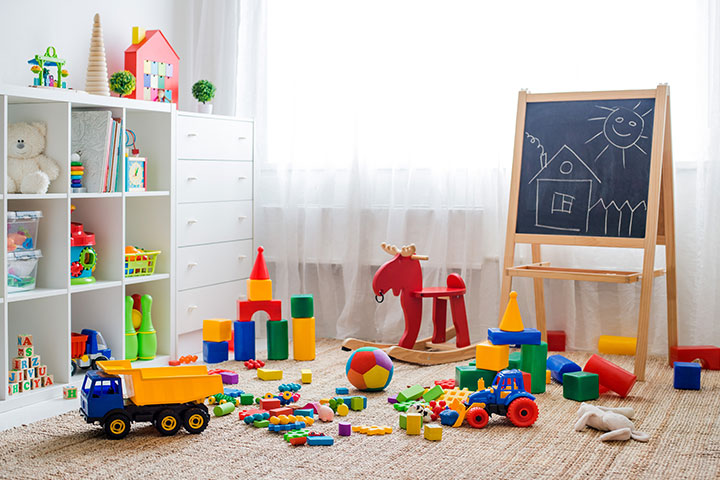
Image: Shutterstock
Being a parent is no small feat – it’s a substantial responsibility that comes with the task of guiding your kids through the journey of learning and growth. It’s all about focusing on the everyday actions that can impact your child’s development. In this article, we’ll break down the essential steps that make up the day-to-day role of a parent. We will provide some practical insights into how you can support and nurture your little ones as they navigate the exciting world of learning and growth. Let’s explore these simple yet powerful actions that form the foundation for your child’s thriving development. Read on!
1.Create A Safe And Stimulating Environment
Make sure your home is a safe and exciting place for your child to explore. Allow them enough space to move around freely and discover things on their own. Remove any small objects that could be a choking hazard, and create a space where they can safely reach for objects and play without getting hurt.
2.Talk, Sing, And Read Aloud
Image: Shutterstock
Communication is key to learning, and even when your child is too young to respond, talking, singing, and reading aloud can make a big difference. It helps them get used to the sounds of language and boosts their brain development. So, share stories, sing songs, and have simple conversations with your little one.
3.Encourage Exploration With Safe Objects
Babies love to touch and explore everything. Provide them with safe objects to touch, hold, and examine. Different textures, colors, and shapes can stimulate their senses and contribute to their understanding of the world around them.
4.Celebrate Small Achievements
Every little milestone matters. Whether it’s the first time they grab a toy or the first step they take, celebrate those small achievements. Positive reinforcement helps build their confidence and encourages them to keep trying new things.
5.Establish A Routine
Image: Shutterstock
Children thrive on routine, as it provides a sense of security and predictability. Establish a daily routine for meals, naps, and playtime. This helps your child know what to expect and creates a stable environment for learning and development.
6.Encourage Social Interaction
Socializing is an essential part of learning. Allow your child to spend time with other kids, whether it’s playdates, park visits, or toddler groups. This helps them develop important social skills, such as sharing, taking turns, and communicating with others.
7.Limit Screen Time
While technology can be a helpful learning tool, it’s important to limit screen time for young children. Too much screen time can interfere with their sleep, attention span, and overall development. Instead, focus on activities that engage their senses and promote hands-on learning.
8.Provide A Variety Of Toys
Image: Shutterstock
Children learn through play, and having a variety of toys can enhance their cognitive and motor skills. Offer toys that encourage different types of play, such as building blocks for problem-solving, art supplies for creativity, and soft toys for sensory exploration.
9.Teach Basic Self-Care Skills
Help your child develop basic self-care skills, such as feeding themselves, dressing, and washing hands. These activities not only promote independence but also contribute to their fine motor skills and coordination.
10. Encourage Outdoor Play
Fresh air and outdoor activities are great for your child’s overall well-being. Take them to the park, let them explore nature, or simply play in the backyard. Outdoor play contributes to physical development, improves coordination, and allows them to experience the world in a different way.
11. Model Positive Behavior
Image: Shutterstock
Children are like sponges, absorbing everything around them. Be a positive role model by demonstrating kindness, patience, and good manners. Your actions speak louder than words, and children are more likely to imitate positive behaviors they see in their parents.
12. Involve Them In Daily Tasks
Include your child in simple daily tasks like setting the table, putting away toys, or sorting laundry. Involving them in these activities not only teaches responsibility but also enhances their motor skills and understanding of everyday tasks.
13. Provide Opportunities For Problem-Solving
Allow your child to face simple problems and find solutions. Whether it’s figuring out how to stack blocks or finding a lost toy, these challenges help them develop problem-solving skills and foster a sense of independence.
14. Be Supportive And Patient
Image: Shutterstock
Learning is a process, and each child has their own pace. Be supportive and patient, offering praise and encouragement for their efforts. Creating a positive and nurturing environment is crucial for fostering a love of learning.
15. Stay Involved In Their Education
As your child grows, stay involved in their education. Attend parent-teacher meetings, communicate with their teachers, and support their learning at home. This ongoing involvement shows your child that education is a priority and something to be valued.
Helping your kids learn doesn’t require complex strategies or grand plans. By focusing on simple, everyday actions, you can create an environment that supports your child’s development and sets the stage for a lifelong love of learning. Remember, it’s the small, consistent efforts that make a big difference in your child’s growth and well-being.

















